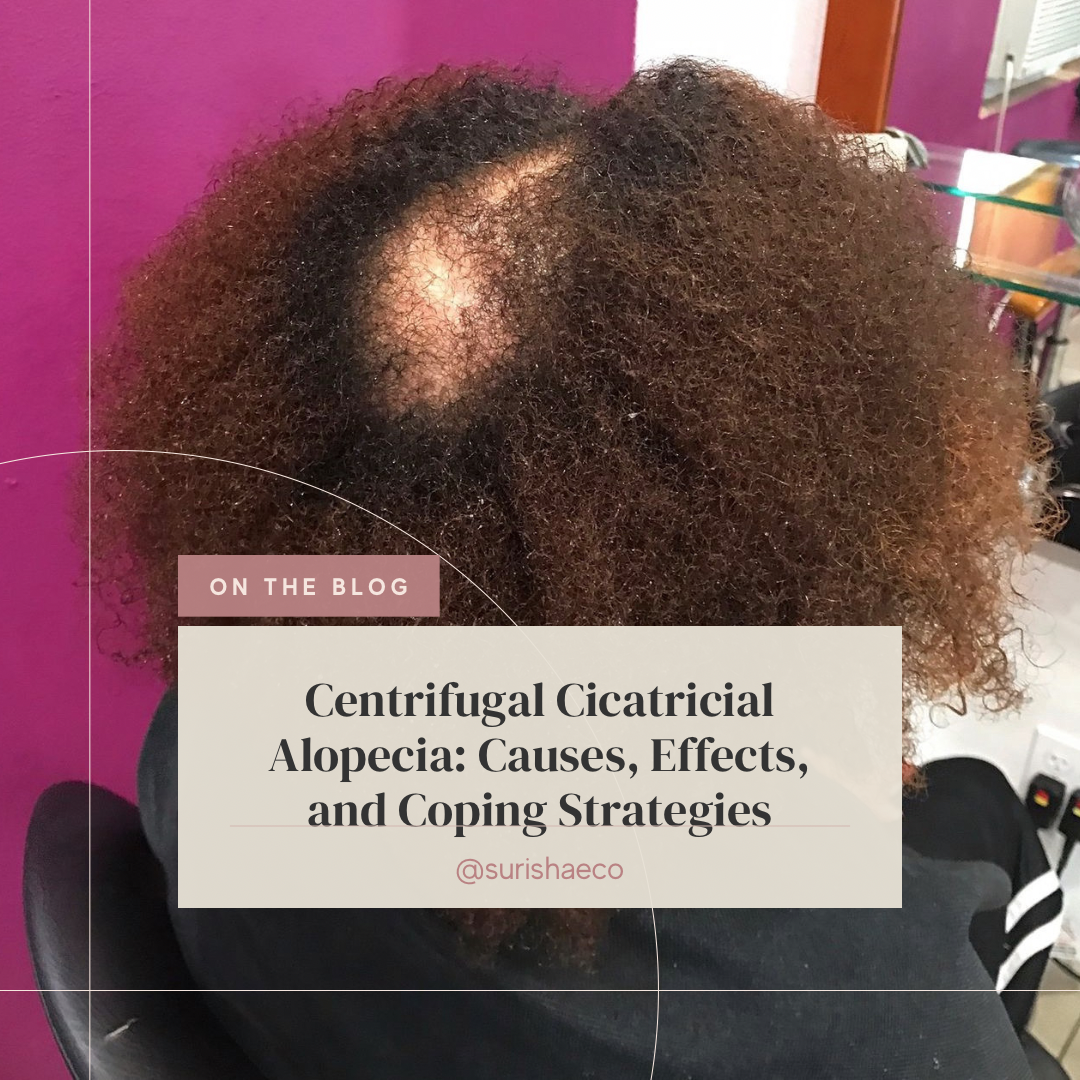
Centrifugal Cicatricial Alopecia: Causes, Effects, and Coping Strategies
Share

 The lady in the images is an “actual” customer who’s had this form of alopecia for quite some years now. She has Central Centrifugal Cicatricial Alopecia (CCCA- damage to the hair follicle) She's unsure of the exact cause, but her mom has it throughout her scalp (said it was from being struck by a dart, and getting an infection from that). Although one cause is that it could be hereditary, here are some other possible causes!
The lady in the images is an “actual” customer who’s had this form of alopecia for quite some years now. She has Central Centrifugal Cicatricial Alopecia (CCCA- damage to the hair follicle) She's unsure of the exact cause, but her mom has it throughout her scalp (said it was from being struck by a dart, and getting an infection from that). Although one cause is that it could be hereditary, here are some other possible causes!
Genetics - It mostly affects women of African decent, and can be hereditary. A study was done from 2005-2012 on a select amount of black women and their family members. All patients displayed histological features typical of CCCA.
Hot combing, something rarely done these days! (microscopic droplets of hot hair oil drip onto and damage the hair follicles)
Chemical relaxing (the severe tingling and burning that occurs when the application directions are not followed may produce inflammation and destruction of the hair follicles). Basing of the scalp should be done in cases of those with sensitive scalps.
Tight rollers or curlers used to set the hair (the chronic pulling or traction of the hair may produce inflammation and destruction of the follicles)
Braids with extensions or weaves to style the hair (the chronic pulling or traction of the hair may produce inflammation and destruction of the follicles)
Blow drying (excessive heat applied to the scalp and hot oil droplets may destroy the follicles) “Oiling or greasing the scalp” (may block the follicles and cause inflammation in the follicles).
Even the placements of Bobby pins can be a factor. Ever had an up-do, pin up style with Bobby pins, and feel them pressing down on the scalp? Try to adjust them. Be careful with tight elastic/rubber bands. These can all cause damage to the scalp over time.
I strongly recommend ceasing the use of chemical relaxers if you have this scalp condition. If you’re not prepared to stop using relaxers yet, ensure your stylist works carefully around the affected area to prevent additional damage to the scalp. It’s essential to consult a dermatologist for personalized recommendations on managing the condition effectively.